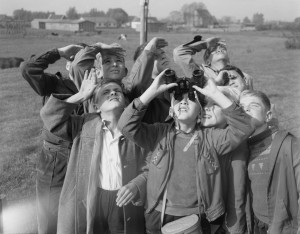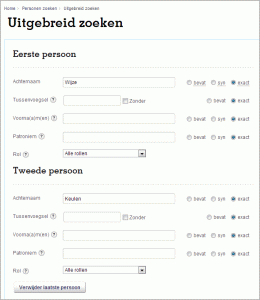If you are stuck, it is tempting to start searching broadly. You might use Google or a national database like WieWasWie to see where your ancestors' name pops up. However, this strategy often does not give you the result you're hoping for. You may find dozens of namesakes all over the country, without any way to tell if any of them is your ancestor. Or, even riskier, you may find just one namesake, and be tempted to conclude that this must be the one. However, the index may be incomplete, so … [Read more...]
Quick tip: try spelling variations
Even after the introduction of the civil registration, but especially in earlier records, there may be spelling variations of a name. A woman may be called Elizabeth or Elisabeth, her last name might be written as Jansen or Janssen. Especially since most Dutch search engines only find exact matches, it is important to try different spelling variations or use wildcards. A search for Eli* Jans* would have found all four variations of the name. If you can't find a person, also search for … [Read more...]
Dutch term: Uitgebreid zoeken
The words uitgebreid zoeken mean "advanced search" (literally: elaborate search). You will often find the term on websites with genealogical databases where the "uitgebreid zoeken" link will take you to a search form with more options to formulate your query. Beware that most search engines only find exact matches, so don't fill out too much information. … [Read more...]
Quick tip: using genealogical search engines
Did you know that most genealogical websites in the Netherlands use a different search strategy than websites in the US? Most Dutch websites only find results that are a perfect match for your query. Each term you fill in acts as a filter for the results set and limits the chance of finding anything useful. The more you fill in, the less you find! This is different than most international websites, where approximate matches are also shown, with the best matches appearing first. If you use a … [Read more...]





